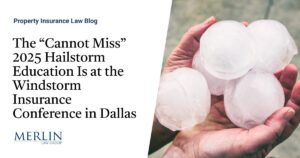What are the 3 basic levels of coverage that exist for homeowners insurance?
What are the 3 basic levels of coverage that exist for homeowners insurance?
Homeowners insurance policies generally cover destruction and damage to a residence’s interior and exterior, the loss or theft of possessions, and personal liability for harm to others. Three basic levels of coverage exist: actual cash value, replacement cost, and extended replacement cost/value.
Which of the following is something that will not affect your homeowners insurance premium?
Which of the following is something that will not affect your homeowners insurance premium? Answer: A (The distance of the home from a school.)
Why did my homeowners insurance go up 2022?
Your insurance premiums will likely go up in 2022 — if they haven’t already. Amid the COVID-19 pandemic, many insurance companies have seen elevated claims activity. Extreme weather events, pandemic-related claims, civil unrest, and inflationary pressures have put pressure on insurance companies’ profitability. Dec 11, 2021
How do you set up a mortgage payment?
If you want to do the monthly mortgage payment calculation by hand, you’ll need the monthly interest rate — just divide the annual interest rate by 12 (the number of months in a year). For example, if the annual interest rate is 4%, the monthly interest rate would be 0.33% (0.04/12 = 0.0033). Oct 28, 2021
Is homeowners insurance tax deductible?
Homeowners insurance is one of the main expenses you’ll pay as a homeowner. Homeowners insurance is typically not tax deductible, but there are other deductions you can claim as long as you keep track of your expenses and itemize your taxes each year. Jan 19, 2022
Why has my home insurance doubled?
When catastrophes like wildfires, wind or hail are on the rise in your area, it increases the risk to your property, and insurance carriers typically increase rates in tandem. Upticks in damaging weather conditions like hail, wind, tornadoes and hurricanes can also cause a rise in premiums.
What factors affect homeowners insurance?
Here are 10 factors that affect how much homeowner insurance costs: Where you live. The price of your home and the cost to rebuild it. The amount of coverage. Your home’s age and condition. Home security and safety features. Your credit history. Additional types of coverage. Your deductible. More items… • Jul 31, 2020
How do I get rid of my PMI?
How To Get Rid Of PMI Step 1: Build 20% equity. You cannot cancel your PMI until you have at least 20% equity in your property. …Step 2: Contact your lender. As soon as you have 20% equity in your home, let your lender know to cancel your PMI. …Step 3: Make sure your PMI is gone. Nov 23, 2021
Is PMI the same as mortgage insurance?
Private mortgage insurance, also called PMI, is a type of mortgage insurance you might be required to pay for if you have a conventional loan. Like other kinds of mortgage insurance, PMI protects the lender—not you—if you stop making payments on your loan. Sep 4, 2020
Does paying off mortgage lower insurance?
Here’s the bad news: Your property taxes and homeowners insurance don’t go away once you pay off your mortgage. If you have money in escrow that your lender used to pay your property taxes and homeowners insurance for you, it’s possible that you’ll have extra money leftover in your escrow account. Sep 14, 2019
Which is better replacement cost or actual cash value?
While actual cash value is cheaper, replacement cost provides better coverage since it includes the recoverable depreciation of your property.
Is replacement cost the same as market value?
Replacement cost refers to the amount it would take to rebuild your home from the ground up, whereas market value is the amount that buyers are willing to pay for your house. Your home should be insured at its replacement cost. Jul 21, 2021
How do you calculate insurance premiums?
Insurance Premium Calculation Method Calculating Formula. Insurance premium per month = Monthly insured amount x Insurance Premium Rate. …During the period of October, 2008 to December, 2011, the premium for the National. …With effect from January 2012, the premium calculation basis has been changed to a daily basis. May 11, 2012
How is property premium rate calculated?
To estimate this, take your potential loss and divide by the insurance’s exposure unit. For example, if your home is valued at $500,000 and the exposure unit is $10,000, then your pure premium would be $50 ($500,000 / $10,000).
How much of an umbrella policy should I have?
The rule of thumb for umbrella insurance is to buy as much coverage as your total net worth, factoring in assets like your home, car, investments, and even your retirement accounts. For example, if you own assets worth $1 million, then you should purchase at least $1 million in umbrella coverage. Jan 10, 2022
What does full replacement mean?
Full Replacement Cost means the actual replacement cost from time to time of the improvement being insured, including the increased cost of a construction endorsement, less exclusions provided in the fire insurance policy.
What is a coinsurance clause?
Coinsurance is a clause used in insurance contracts by insurance companies on property insurance policies such as buildings. This clause ensures policyholders insure their property to an appropriate value and that the insurer receives a fair premium for the risk. Coinsurance is usually expressed as a percentage.
What type of property does a personal floaters policy cover?
Floater insurance is a type of insurance policy that covers personal property that is easily movable and provides additional coverage over what normal insurance policies do not. Also known as a “personal property floater,” it can cover anything from jewelry and furs to expensive stereo equipment.
What is not covered under homeowners insurance?
What is not covered? Destruction of property willfully. Damages to property due to wear and tear. Loss to property due to war.
What is not protected by most homeowners insurance?
Termites and insect damage, bird or rodent damage, rust, rot, mold, and general wear and tear are not covered. Damage caused by smog or smoke from industrial or agricultural operations is also not covered. If something is poorly made or has a hidden defect, this is generally excluded and won’t be covered.



